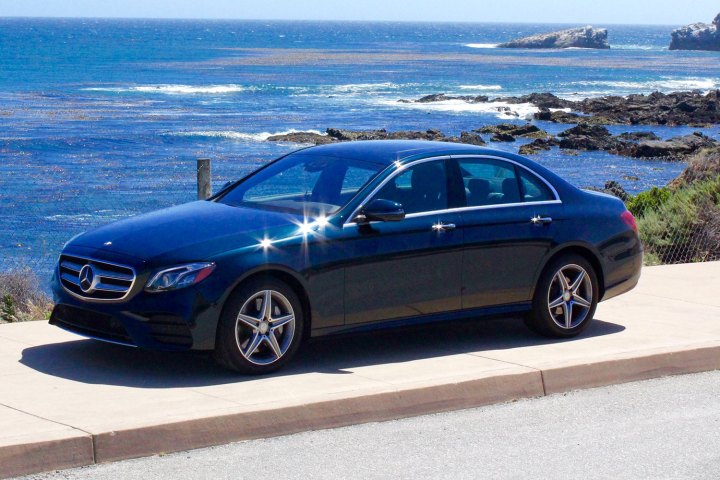
A Mercedes TV commercial for the 2017 E300 with Drive Pilot caused the complaint. The E-Class Drive Pilot option combines advanced adaptive cruise control and a lane-keeping feature. Both are rated to function at speeds of up to 130 mph. The commercial shows a driver moving through city streets at night and removing his hands from the wheel while the car steers itself. A YouTube version of the ad that is now private also showed the driver adjusting his necktie while the car parks itself, reports Automotive News.
The YouTube ad, called “The Future,” had fine print across the bottom that read, “Vehicle cannot drive itself, but has automated driving features. The system will remind the driver frequently to keep hands on the steering wheel. Always observe safe driving practices and obey all road traffic regulations.”
The video narration, however, says, “Is the world truly ready for a vehicle that can drive itself? Ready or not, the future is here.”
Concerns about drivers getting the wrong idea about the car’s capabilities led Consumer Reports, the Center for Auto Safety, the Consumer Federation of America, and former National Highway Traffic Safety Administration (NHTSA) administrator Joan Claybrook to send a joint letter to Federal Trade Commission Chairwoman Edith Ramirez.
The letter states that the E300 Drive Pilot option doesn’t meet the NHTSA’s classification standards for either full or partially autonomous cars. The car, however, according to the letter, is “marketed in a way that a reasonable consumer would believe it does.” The letter also claims the TV ad could give “a false sense of security in the ability of the car to operate autonomously.”
In response, a Mercedes-Benz spokeswoman said, “The systems used in the new E-Class are clearly identified as ‘driver assistance systems’ which we have spent the better part of two decades developing in pursuit of an accident-free future. ‘The Future,’ featuring the F015 concept car, is intended to draw the connection between that vision and the innovations that are in today’s Mercedes-Benz models.”
The spokeswoman also said Mercedes does not intend to confuse viewers about current driver-assistance systems and autonomous cars, “one leads to the other but they are not the same.”
The FTC has not commented on the matter, but the group that sent the letter stated, “FTC guidance bars advertisers from using fine print to ‘contradict’ statements in an ad or ‘clear up false impressions the ad might leave.'”
Updated 7-30-16 by Bruce Brown: Added mention that Mercedes-Benz has withdrawn the ad.




